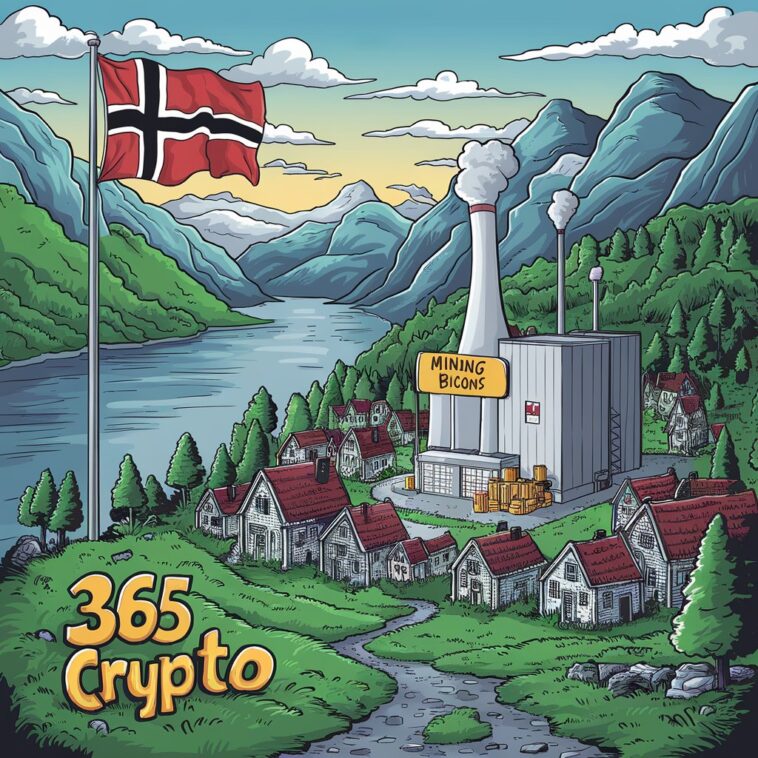Norway Town Faces Higher Electricity Costs After Bitcoin Mine Closure
Residents of Hadsel, a small town in Norway, are seeing a rise in their electricity bills after successfully campaigning to close a local Bitcoin mining operation. The closure of the mine, which accounted for 20% of the income of the local power company Noranett, has resulted in a spike in electricity costs.
Noise Complaints Lead to Mine Shutdown
Hadsel, home to around 8,200 people, had been protesting the noise generated by the Bitcoin mine. On September 9, the mine was shut down, to the relief of many locals. However, this decision came at a price—households are now expected to pay an extra $235 to $280 per year due to the loss of revenue from the mine.
Impact on Electricity Prices
The Bitcoin mining facility consumed about 80 gigawatt hours (GWh) of electricity annually, equivalent to the power used by 3,200 homes. The sudden loss of this large customer has put a financial strain on the power company, leading to increased costs for residents. According to Noranett’s network manager, Robin Jakobsen, the shutdown’s effects were immediate and significant.
Debate Over Bitcoin Mining’s Role
While some residents celebrated the mine’s closure, others, like climate tech investor Daniel Batten, argue that Bitcoin mining helps keep electricity costs down by providing a consistent source of revenue for power companies. This debate mirrors similar situations in other towns across Norway, where noise from mining centers has caused local disputes.
Footnote:
- Bitcoin Mining: The process of using powerful computers to solve complex problems that secure Bitcoin transactions, which consumes a large amount of electricity.




